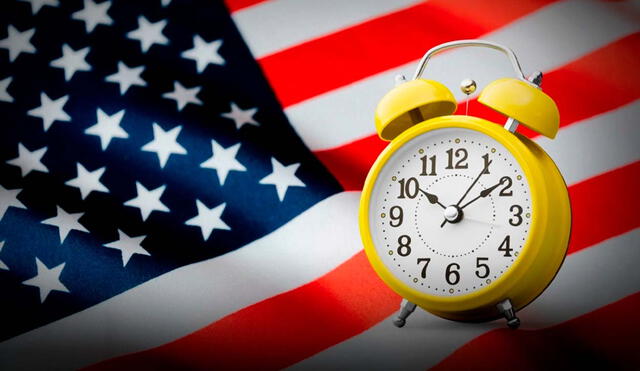Daylight Saving 2025: These U.S. States aim to ‘Lock the Clock’ and end Time Changes
With daylight saving time approaching again, nearly half of U.S. states are pushing to end the clock-changing tradition for good. Here's a look at who wants permanent daylight saving time, who prefers standard time, and what's stopping the change.

We're just weeks away from daylight saving time beginning, and it's not only federal lawmakers (including former President Donald Trump) who hope this might be the last time we "spring forward."
The push to eliminate seasonal clock changes is gaining momentum. Surveys indicate that most Americans favor adopting permanent daylight saving time, although many health experts argue against the practice.

ALSO SEE: Doomsday Clock 2025: How close are we to Global Catastrophe? Scientists’ warning explained
Federal Hurdles Delay America's Move to 'Lock the Clock'
Last December, Trump supported efforts to end the "inconvenient" and "costly" practice. At the same time, leaders from the Department of Government Efficiency (DOGE) called for abolishing daylight saving time altogether. While Trump didn't specify his preference between permanent daylight saving or standard time, numerous state legislators have made their positions clear.
Nearly two dozen states have introduced legislation addressing daylight saving time this year. For example, Illinois and Ohio have proposed resolutions urging Congress to establish permanent daylight saving time—a change already under consideration federally. Some states have successfully passed similar laws, which we’ll cover shortly.
Lawmakers in Connecticut, Illinois, Iowa, Maine, Maryland, North Carolina, and Pennsylvania want daylight saving time observed throughout the entire year. A similar proposal in Mississippi, however, did not advance past the committee stage.
Under current federal law, states can only opt for permanent standard time—something only two states have implemented. They cannot independently adopt permanent daylight saving time. Most state proposals seeking year-round daylight saving time depend on congressional approval.
U.S. Representative Celeste Maloy (R-UT) recently introduced federal legislation granting states the authority to observe permanent daylight saving time if they choose.
Meanwhile, states such as Arkansas, California, Idaho, Indiana, Kansas, Kentucky, Nevada, New Jersey, North Dakota, Oregon, Pennsylvania, South Dakota, Utah, Washington, and West Virginia have bills in progress aimed at either adopting permanent standard time or exempting themselves from daylight saving changes.
States Divided: Permanent Daylight Saving vs. Standard Time
Several states, including Alaska, Massachusetts, Missouri, Nebraska, New York, South Carolina, Texas, and Virginia, face competing bills supporting both permanent standard and daylight saving time. Texas lawmakers have even suggested allowing voters to decide between the two options.
Many of these proposals have unique conditions attached. For instance, Oregon's proposed bill would only move the Pacific Time Zone part of the state to permanent standard time if neighboring California and Washington enact the same change within the next decade. Connecticut’s proposal would similarly require neighboring states Massachusetts, Rhode Island, and New York to adopt permanent daylight saving time first.
In New York, lawmakers are considering forming a task force to analyze the implications of opting out of daylight saving time. Oklahoma introduced legislation this year to reverse an earlier law adopting permanent daylight saving.
Several state proposals explicitly state they'll follow if the U.S. federal government approves permanent daylight saving time. Utah’s bill, for example, specifies this condition clearly.
California, where lawmakers introduced a resolution acknowledging the health benefits of permanent standard time, already has voter authorization to modify daylight saving observance pending federal approval—though only permanent standard time is currently an option.
Similar laws supporting permanent daylight saving time—contingent upon federal approval—have already passed in Alabama, Colorado, Delaware, Florida, Georgia, Louisiana, Minnesota, Tennessee, and Wyoming. Some states, like Delaware and Wyoming, have added provisions requiring neighboring states to follow suit before implementation.
A few states, like Michigan, New Hampshire, and New Mexico, haven't recently considered "clock-locking" measures. In the past five years, the District of Columbia, Rhode Island, and Wisconsin haven't proposed related legislation.
New daylight saving bills introduced at the congressional level remain in committee for now. Thus, daylight saving time is still set to begin on March 9 and end on November 2.











